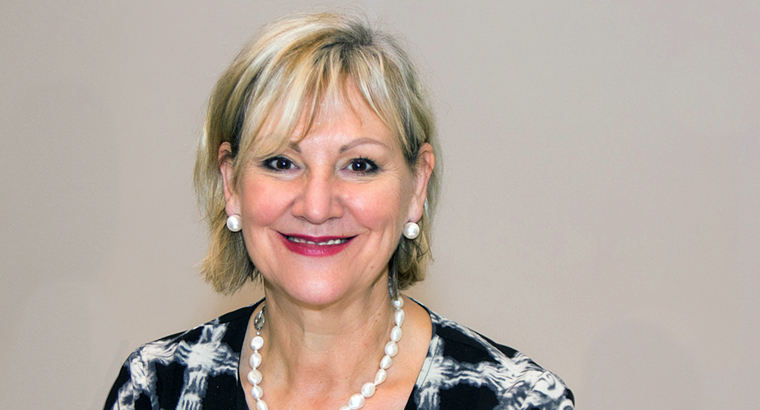News
Isolation led to loss of function for people with dementia: Report
And those functions are unlikely to be restored.
 Isolation exacerbated dementia symptoms, leading some people to no longer recognise their family members.
Isolation exacerbated dementia symptoms, leading some people to no longer recognise their family members.
‘When people [with dementia] have been in extended periods of isolation, when they’ve not had access to family members and loved ones, their dementia symptoms have exacerbated.
‘What that means is that they have lost other functions, and for most people living with dementia they will not be able to restore those functions, so it’s particularly difficult.’
That is Maree McCabe, CEO of Dementia Australia.
She is talking to newsGP about the ‘incredibly difficult’ effects of isolation.
These effects have been outlined in a new report released by the University of Sydney in partnership with Dementia Australia, which details the mental health impact of COVID-19 on people living with dementia, their families and carers.
‘Of the 460,000 Australians living with dementia, 70% live in the community. And of people in residential care, we know that over two-thirds have a moderate to severe cognitive impairment,’ Ms McCabe said.
‘They’ve been one of the most vulnerable groups in our society and they already experience high levels of social isolation, so the pandemic has absolutely exacerbated that experience for people.’
For people living with dementia, Ms McCabe says, stimulation is a ‘very tenuous balance’.
‘Too much is overwhelming and unhelpful, and too little in fact has a severe impact on their cognitive ability,’ she said.
Without adequate stimulation, many people with dementia lost functions such as the ability to shower independently, or manage meal time on their own. Many also lost the ability to recognise family members.
‘That’s a really big one for people,’ she said.
‘We’ve had a number of family members say that their loved one with dementia doesn’t recognise them anymore, and that is such a big deal for people.’
Isolation also exacerbated mental health issues. People affected by dementia already experience lower levels of social engagement, inclusion and connectedness within their community.
‘And that, coupled with the restrictions enforced, makes them even more vulnerable to adverse mental health outcomes,’ Ms McCabe said.
She says people living in the community experienced ‘heightened levels of anxiety and depression’.

Dementia Australia CEO Maree McCabe says extended periods of isolation led to exacerbation of symptoms for people living with dementia.
Verity Jausnik can attest to isolation’s mental health effects on people living with dementia.
She told the ABC that her mother, Vivian ‘Viv’ Russell, who is 77 and has been living with early-onset dementia for a decade, had an accelerated deterioration in her aged care facility during lockdown.
‘She was so alone and starved of touch and stimulation that she would be crying,’ Ms Jausnik said.
‘She really became incredibly depressed. I would get phone calls from the staff where they would pop her on the phone and she would say, “I want to come home. I don’t want to be here”.’
When Ms Jausnik was finally able to see her mother, she noticed she was ‘shuffling’ instead of walking and lacked the ability to groom herself.
Ms McCabe says GPs play a pivotal role in helping address issues exacerbated during the pandemic.
‘GPs are at the forefront of delivering care to people and it’s really important that they look out for anxiety and depression in people living with dementia,’ she said.
She says it is also important for clinicians to be aware that many people living with dementia have not received the kind of care they would have before the pandemic. Home care services were not always accessible during lockdown.
‘[They] refused to accept them because they [didn’t] want people in their home; they [were] scared,’ Ms McCabe said.
That means patients on medication that needed monitoring did not receive necessary oversight, and tests needed to check other conditions were not performed.
‘So there’s been an adverse health impact to their physical, social and cognitive health,’ Ms McCabe said.
Another point to keep in mind, Ms McCabe says, is that people who were in the process of being assessed for a diagnosis before the pandemic may remain undiagnosed.
While the isolation of strict lockdown is now over in Australia, GPs are likely to find there are still lingering issues for people living with dementia seeking care. Ms McCabe believes it is therefore important for clinicians to work on alternative methods of caring for such patients.
‘One of the challenges they may find is that people don’t turn up for appointments because they’ve now got into the habit of being at home and being restricted and they’re quite anxious about going out,’ she said.
‘Telehealth options are really important [for] people who are now fearful about leaving the home and have lost confidence in that area.
‘The impact on carers over this period has [also] been significant, and I think that sometimes we forget about that.’
Without the presence of the usual support groups and structures, carers shouldered more responsibility.
Ms McCabe wants GPs to know further support is available through Dementia Australia.
‘Dementia Australia is very committed to working with GPs to ensure that their patients receive the best support that we can possibly give, and that we continue to link them back to their GPs,’ she said.
‘We really want to partner with you to provide the best care and support for your patient living with dementia.’
Log in below to join the conversation.
dementia isolation lockdown
newsGP weekly poll
As a GP, do you use any resources or visit a healthcare professional to support your own mental health and wellbeing?